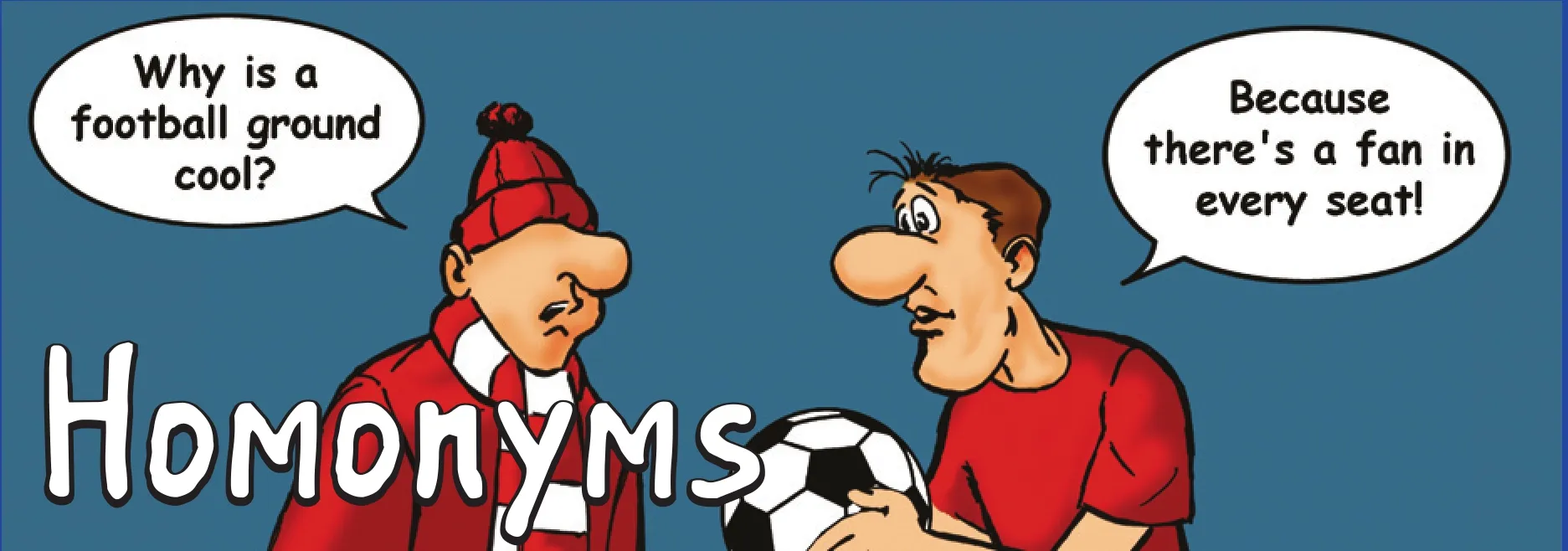CARTOONS & JOKES 漫·话
2015-03-31ByRichardSidaway
By Richard Sidaway
CARTOONS & JOKES 漫·话
By Richard Sidaway

Homonym: a word that has the same spelling and the same pronunciation as another word, but a different meaning
Writing it down
Unlike some other European languages, English is a little tricky when it comes to writing. How a word is pronounced and how it is actually spelt can be very different things. Take two simple verbs like ‘have’ and ‘save’—shouldn’t they be pronounced the same? Why do ‘sir’, ‘her’ and ‘fur’ all rhyme, but ‘fork’ and ‘work’ don’t?
Same spelling, different meaning
Imagine, then, a situation where two words are spelt and pronounced exactly the same way, but have completely different meanings. Welcome to the world of homonyms. Take, for example, the word ‘fair’—it can be a kind of festival, an adjective to describe the colour of your hair or how you should play a game. Or ‘leg’, which can be attached to a person, or a table and can also be a distance you travel, or a part of a competition.
Don’t take it literally
So how do you know which meaning someone is referring to?—You don’t, except by the context. Obviously, if someone asks you to‘give them a hand’, they don’t want you to remove what is at the end of your arm.
What’s in a name?
Sometimes even the context doesn’t help much—the result can be amusing. These sentences play with the double meaning of a noun: I used to be a banker, but I lost interest.
Have you heard about the cross-eyed teacher who couldn’t control his pupils?
A small boy swallowed some coins and had to go to hospital. When his grandmother phoned to ask how he was, the nurse said: ‘No change yet’.
More ambiguity
And these examples play with the different meanings of a verb:
I wondered why the ball was getting bigger. Then it hit me. No one knew she had a dental implant, until it came out in a conversation.
A boiled egg in the morning is hard to beat.
Double trouble
And sometimes a word can be a noun and a verb, but have different meanings. Can you work this one out?
Time fies like an arrow. Fruit fies like a banana.
If you liked these homonyms, you will be pleased to know that English has plenty more!
Explanations of jokes in the text
I used to be a banker, but I lost interest. (I became bored with the job / I lost money)
Have you heard about the cross-eyed teacher who couldn’t control his pupils? (students / parts of his eyes) A small boy swallowed some coins and had to go to hospital. When his grandmother phoned to ask how he was, the nurse said: ‘No change yet’. (no difference in the situation / no money)
I wondered why the ball was getting bigger. Then it hit me. (the ball hit me / I suddenly realised)
No one knew she had a dental implant, until it came out in a conversation. (became known / fell out)
A boiled egg in the morning is hard to beat. (can’t be better / diffcult to mix with a fork)
Time fies like an arrow. (time goes quickly) Fruit fies like a banana. (insects enjoy eating fruit)
